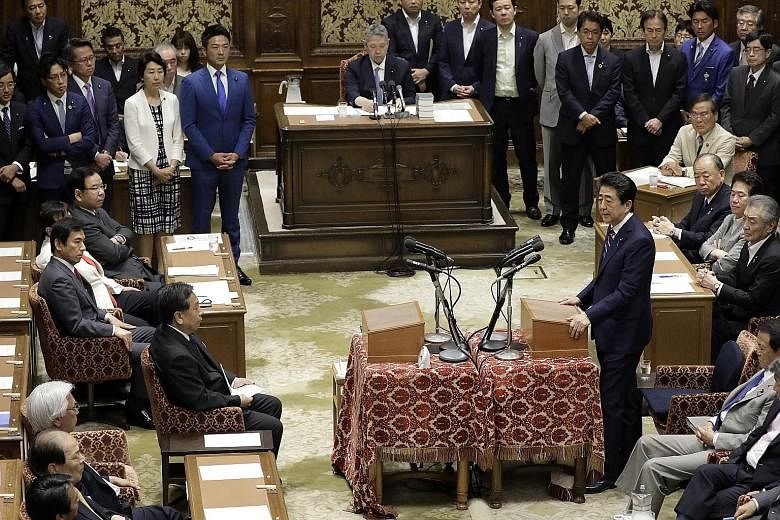TOKYO • Japan will hold an election for the Upper House on July 21, the government said yesterday, effectively launching campaigning for half the seats in the less powerful of Parliament's two Chambers.
Expectations had simmered for Prime Minister Shinzo Abe to call a snap election for the Lower House, but last week he said he was not considering such a move.
The ruling coalition, led by Mr Abe's Liberal Democratic Party (LDP), is expected to keep its majority, though possibly with reduced numbers, as support for it exceeds that for the fragmented opposition despite a recent furore over pensions.
"The biggest focus of this Upper House election is whether we will advance reforms for a new era under stable politics, or turn back the clock to that chaotic era," Mr Abe told a news conference.
He was referring to events that unfolded after his conservative LDP suffered a huge defeat in a 2007 Upper House election.
Two months later, Mr Abe quit, after just one year as premier. The defeat set the stage for the LDP's ouster in 2009 by the centre-left Democratic Party of Japan (DPJ).
Mr Abe then led the LDP back to power in December 2012, after a three-year DPJ rule marred by infighting.
However, Mr Abe's flashback mantra is wearing thin after more than six years of LDP rule, said Mr Yukio Edano, the head of Japan's biggest opposition party, Constitutional Democratic Party of Japan.
Mr Edano said he was happy to cooperate with other opposition groups in the July 21 Upper House election, but brushed aside calls from a rival party to merge to fight Mr Abe's ruling bloc.
The idea of a merger "is objectively mistaken... If we join together, our votes will decrease" because policy stances would become blurred, said Mr Edano.
Upper House elections are held every three years and members' terms run for six years.
REUTERS

